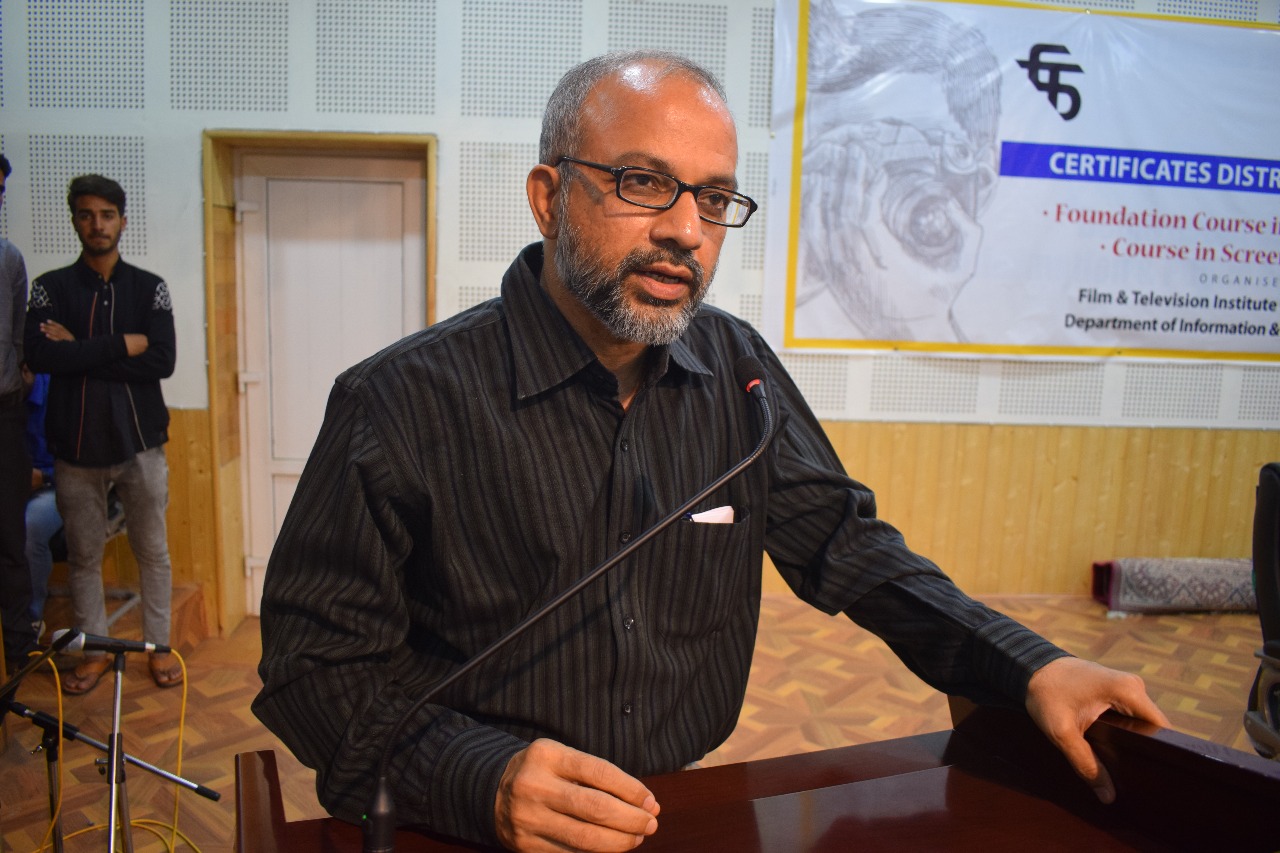In the last 48 months, I travelled 43 times to different parts of the country with the Film and Television Institute of India (FTII) short courses’ faculty–not physically, but in spirit. Looking back, I am incredulous at the remarkable film literacy campaign carried out by the FTII, literally from Kargil to Car Nicobar and a lot of unlikely places in between, like Rudraprayag (Uttarakhand) and Jhunjhunu (Rajasthan), besides Rangat in the Andamans.
The debut was in Mumbai on May 3, 2017, followed by Delhi in June which I reported on while watching six excellent films on the side. There were courses in Film Appreciation, Screenplay Writing and Screen Acting. Later, many other courses were introduced—-now 33 in all—- including Digital Cinematography, Digital Film Production, Writing for TV Fiction, Appreciation of Documentary Films, Smartphone Film-Making and Film Orientation for Children.
FTII Director Bhupendra Kainthola had told me that he would like to extend the reach (“democratisation of film education”, as he put it) to places which traditionally remain off the map of such elite institutions. He did, and how: the campaign not only physically covered India but also reached foreign lands online, including Tanzania, Kenya, Sweden, The Netherlands, the UAE and North America.
Kainthola says it was the FTII Academic Council Chairman four years ago who mentored him. Having known and worked closely with Kainthola over the last 17 years–from the Press Information Bureau (PIB), where he was a Press Facilities Officer, to Lok Sabha Television, where he was Executive Director (Programming), I find him to be a rare breed of government officers.
One of the first things he did after joining FTII was to vacate the hostels of a set of freeloaders, “past students who were in unauthorised occupation of hostel rooms which they had turned into a weekend den of vices”. Simultaneously, he set in place a team to eradicate ragging while running a sensitive campaign against drugs, a task in which he involved the students and some parents. He understood that cracking the whip would not work, and that the students needed to be healed of the addiction. His approach worked and today the campus is almost free of drugs and no case of ragging has been reported during the last four years. This was the human being in Kainthola while the professional had his eyes set high on expanding the reach of FTII.
His interactions with the greats of the international, national and regional cinema as a Director of National Film Awards and Indian Panorama in the Directorate of Film Festivals (DFF) for over four years before he came to FTII, planted the seeds of his future role that became evident as soon as he came to FTII.
He is a visionary and the kind of ‘government servant’ who takes his role very seriously, especially the second part. He treats every job as true service and becomes totally involved in it–for as long as he is allowed to remain in the job. When transferred, he seems to be composed and neutral. He was transferred suddenly from two places in as many years just as I was expecting him to turn them around, but it did not bother him. He displays no rancour against anyone despite having faced the occupational hazard of workplace politics at several places in his 31-year-long career.
I have seen him take a compassionate view of bad bosses and inefficient juniors, and he has a unique perspective about them. “A difficult boss or an incompetent subordinate is a karmic situation playing out of a past life bad karma that cannot be wished away; it has to be suffered through and worked out”, he often says. He does not lock horns with fools, does not indulge in wasteful office banter and when he joins a new place, it is literally after discarding the baggage of the previous job. It is thus that he is able to put a new spark in every role assigned to him. And it is the result of this approach that he was able to take the FTII film literacy campaign to such heights.
During the last four years, there was not a month when FTII drew a blank in its outreach programme. The result has been phenomenal. More than 250 courses were conducted that attracted nearly 9500 learners in India and abroad. It also earned FTII Rs 1.5 crore in revenue. Do you see the power of good a true government servant holds, and what he can do in public as well as government interest? I do.
As a journalist who has seen most of such power being cynically expended in wasteful condemnation of others and repulsive self-promotion, be it among political leaders, journalists and government people, I see Kainthola as an extraordinary sample of Lord Krishna’s teachings. Kainthola is able to excel in every job simply because he remains completely involved with the job but detached with the results. At the same time, he is always a picture of humility. In the first week of May, I received in my email a poster about the FTII’s achievements in its outreach programme. It rightly calls the institution “the Gangotri of film education” and a “people’s institution”. The poster carries the pictures of 40 people, including those of Shekhar Kapur, the head of FTII and the faculty members who were involved in the programme, but not that of Kainthola, the man behind the mission.
It is the missing picture that sums up the story about Kainthola, and makes him deserving of all the compliments he has received in this write-up. My view of him is vindicated by FTII which has given him four extensions, turning his three-year tenure into five. Keep up your steady march on the path of excellence and service that comes with detachment, dear friend. You boost my confidence in the systems and their managers I have studied closely as a journalist over the last 38 years.


















Discussion about this post